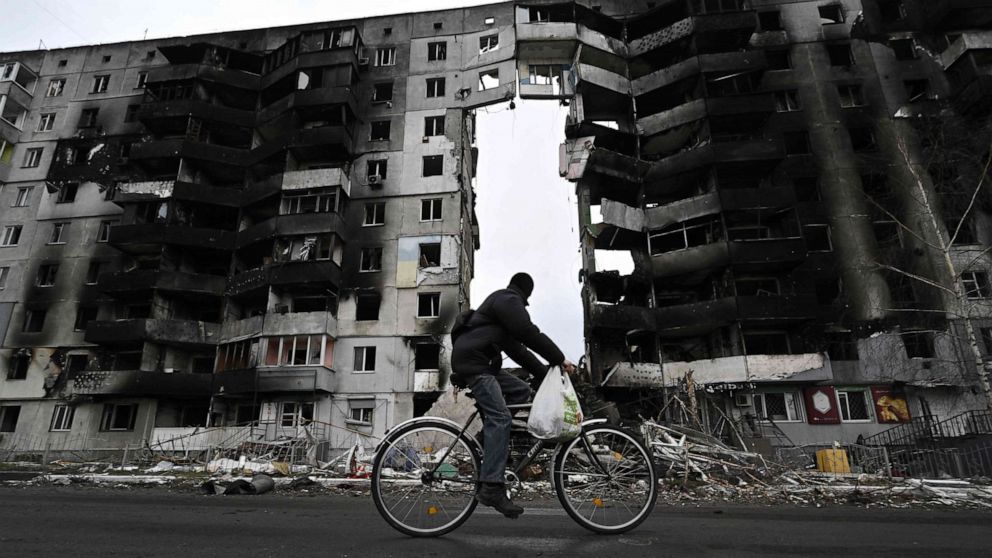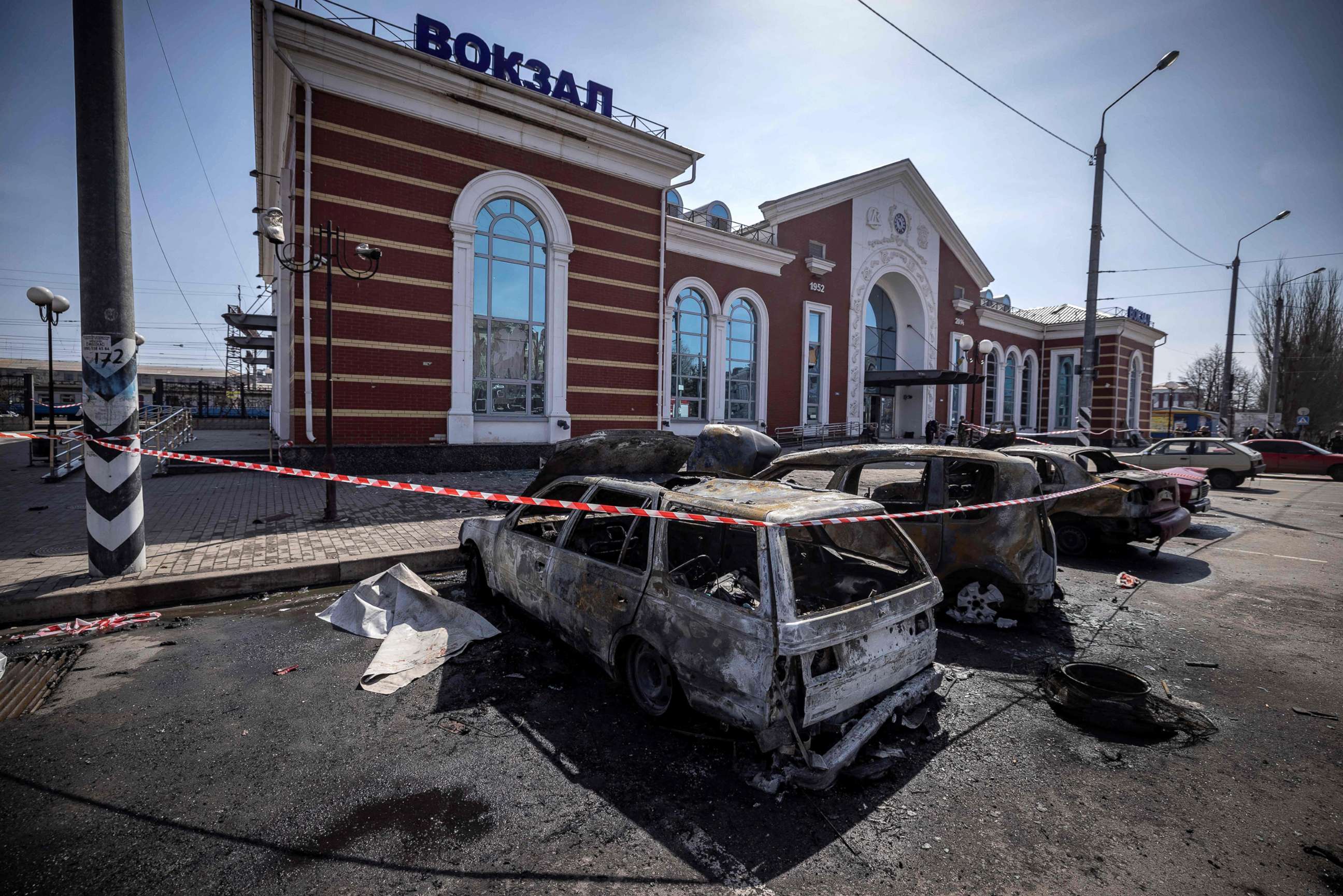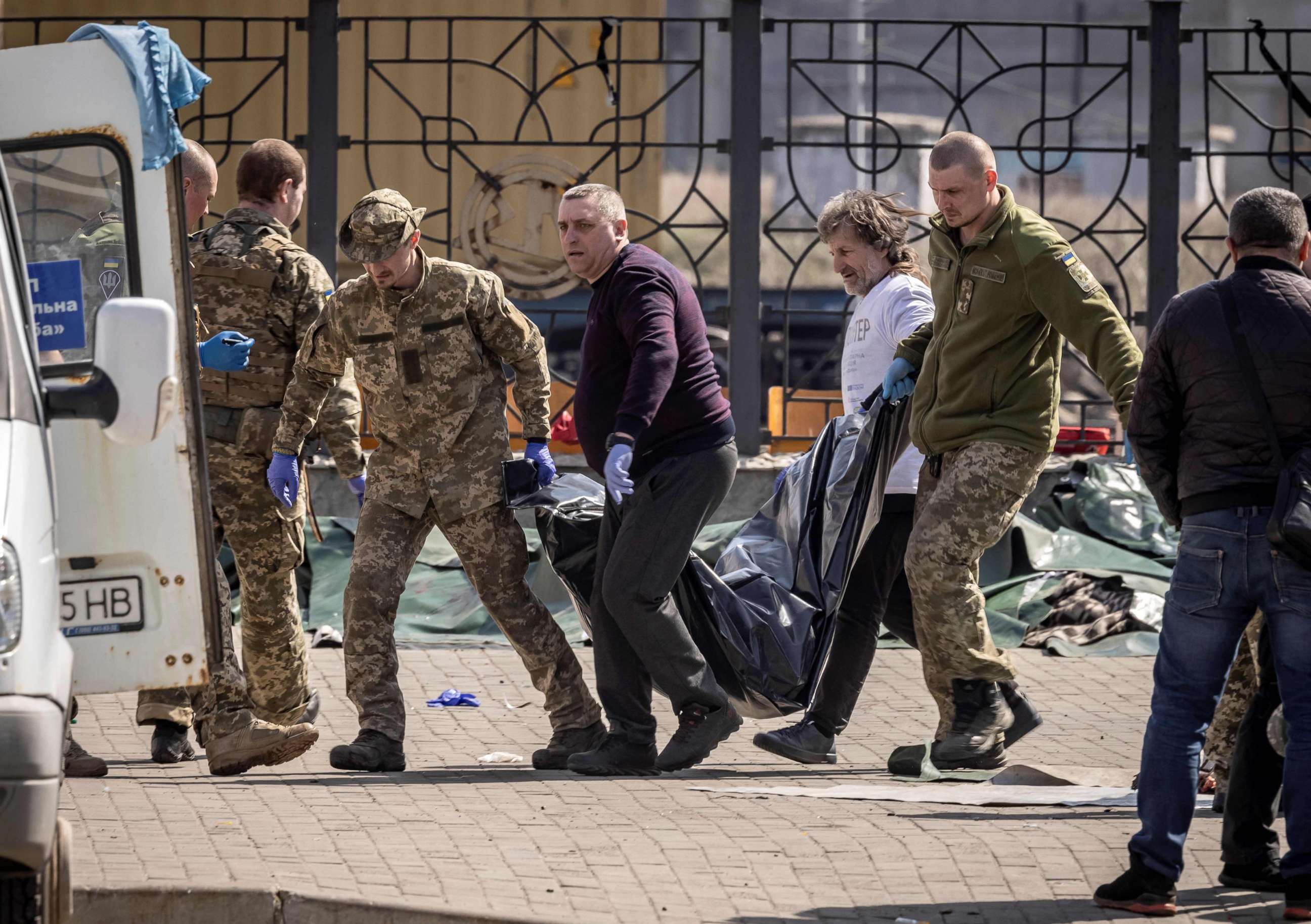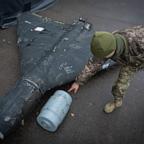Russia may use phosphorus munitions in Mariupol, UK warns
The United Kingdom is warning of Russia's possible use of phosphorus munitions in the besieged Ukrainian city of Mariupol.
Russian forces have already been accused of using phosphorus bombs in Ukraine since launching an invasion on Feb. 24. When deployed as a weapon, phosphorus can inflict excruciating burns and lead to infection, shock and organ failure.
After withdrawing troops from the north, the Russian military is said to be refocusing its offensive on the Donetsk and Luhansk oblasts in eastern Ukraine's disputed Donbas region, where Russia-backed separatist forces have been battling Ukrainian soldiers since 2014. Mariupol, in the Donetsk Oblast, and its residents have been under heavy Russian bombardment for over a month, but Moscow has so far failed to win full control of the strategic port.
"Russian forces prior use of phosphorous munitions in the Donetsk Oblast raises the possibility of their future employment in Mariupol as fighting for the city intensifies," the U.K. Ministry of Defense said Monday in an intelligence update.
Meanwhile, Russian shelling has persisted in the Donetsk and Luhansk oblasts, according to the ministry, "with Ukrainian forces repulsing several assaults resulting in the destruction of Russian tanks, vehicles, and artillery equipment."
"Russia's continued reliance on unguided bombs decreases their ability to discriminate when targeting and conducting strikes while greatly increasing the risk of further civilian casualties," the ministry added.









